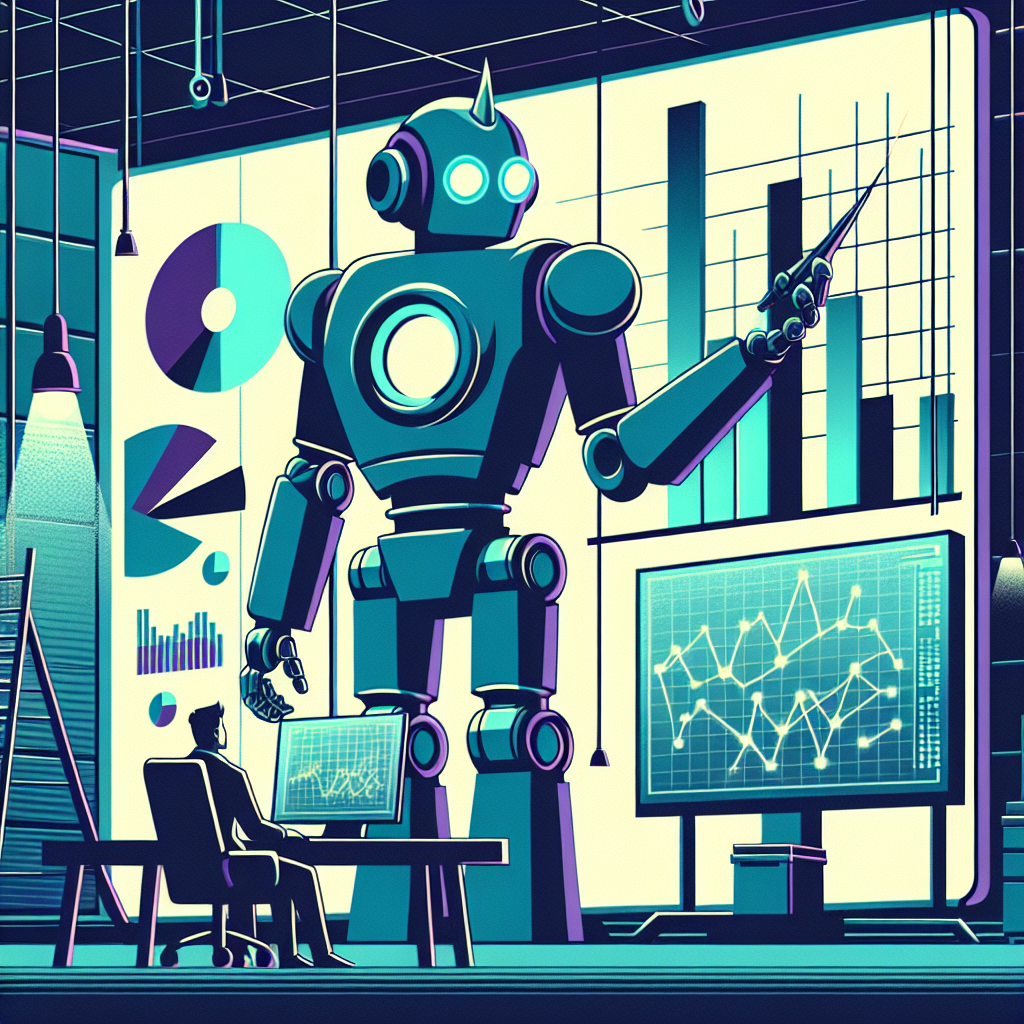Unlocking the Power of AI in Massive Parallel Sequencing AndTransforming Genomics Research
Today, I want to explore the fascinating world of massive parallel sequencing and how

Social media has become an integral part of our daily lives, connecting people across the globe and providing businesses with unprecedented opportunities to reach their target audience. As technology evolves, artificial intelligence has emerged as a game-changer in social media marketing. AI has transformed how marketers approach social media, enabling them to gather and analyse vast data, create compelling content, and engage with customers more effectively. In this blog post, we will delve into how AI has revolutionised social media marketing and explore the ethical considerations surrounding its use.

One of the most significant ways AI has transformed social media marketing is through advanced analytics. With the help of AI-powered tools, marketers can now gather and analyse massive amounts of data from various social media platforms. This data includes user demographics, engagement rates, sentiment analysis, and more. By leveraging machine learning algorithms, AI can identify patterns and insights that would be nearly impossible for humans to detect manually.
For example, AI can analyse the content that resonates most with a brand's target audience, allowing marketers to tailor their content strategy accordingly. Marketers can create more relevant and engaging content by understanding their audience's preferences and behaviours, leading to higher conversion rates and customer loyalty.
Moreover, AI-powered analytics can help marketers identify influencers and key opinion leaders within their niche. By partnering with these individuals, brands can expand their reach and tap into new audiences. AI can also help marketers track the performance of their social media campaigns in real-time, enabling them to make data-driven decisions and optimise their strategies on the fly.
In addition to analytics, AI is revolutionising social media content creation. Using natural language processing (NLP) and machine learning algorithms, AI can generate text, images, and videos tailored to a brand's target audience.
For instance, AI-powered tools like Writesonic and Copy.ai can generate compelling social media captions, product descriptions, and even blog posts. These tools use advanced NLP algorithms to analyse a brand's existing content and develop new, engaging content that aligns with the brand's voice and style.
Similarly, AI can also be used to create visually stunning images and videos. Tools like Canva and Adobe Sensei use machine learning algorithms to analyse a brand's visual style and generate custom designs and animations that fit seamlessly with the brand's aesthetic.
By leveraging AI-driven content creation tools, marketers can save time and resources while producing high-quality, engaging content that resonates with their audience.

AI is also transforming the way brands approach social media advertising. Using predictive analytics and machine learning algorithms, AI can analyse vast amounts of data to identify the most effective ad placements, targeting options, and creative elements.
For example, AI can analyse a brand's past ad performance data to identify the demographics, interests, and behaviours of the users who are most likely to convert. By targeting these users with personalised ads, brands can improve their ad relevance and click-through rates, leading to higher conversion rates and ROI.
Moreover, AI-powered chatbots can engage with customers quickly, providing personalised recommendations and support. Chatbots can handle various customer inquiries, from product questions to order tracking and returns. By providing instant, 24/7 support, chatbots can improve customer satisfaction and loyalty while freeing human agents to focus on more complex issues.
Managing a brand's social media presence can be time-consuming and resource-intensive. However, with the help of AI, marketers can automate and optimise many of these tasks, allowing them to focus on more strategic initiatives.
For instance, AI-powered tools like Hootsuite and Sprout Social can automatically schedule social media posts based on optimal engagement times, ensuring that content reaches the right audience at the right time. These tools can also monitor real-time social media conversations and sentiment, alerting marketers to potential issues or opportunities.
Moreover, AI can streamline customer service on social media. By analysing customer inquiries and conversations, AI can automatically route messages to the appropriate team member or department, reducing response times and improving customer satisfaction.
While AI has the potential to revolutionise social media marketing, it also raises important ethical considerations that marketers must be aware of.
Privacy is one of the most significant concerns surrounding AI in social media marketing. As AI-powered tools collect and analyse vast amounts of user data, there is a risk that this data could be misused or shared without users' consent. Marketers must ensure transparency about their data collection practices and provide users with clear options to opt-out or control how their data is used.
Another concern is bias. AI algorithms are only as unbiased as the data they are trained on, and if that data contains biases, the algorithms will reflect those biases. For example, if an AI tool is trained on data that primarily includes a specific demographic, it may generate content or ad targeting that is biased towards that demographic. Marketers must be aware of these potential biases and take steps to mitigate them, such as ensuring that their training data is diverse and representative.
Finally, there is the issue of transparency. As AI becomes more prevalent in social media marketing, marketers must be transparent about using these tools. This includes disclosing when content or ads are generated by AI and providing information about how user data is being collected and used.
AI has already profoundly impacted social media marketing, and its influence is only set to grow in the coming years. AI transforms how brands approach social media, from advanced analytics and content creation to ad targeting and customer service.
However, as with any new technology, marketers must be aware of critical ethical considerations. By prioritising privacy, mitigating bias, and promoting transparency, marketers can harness the power of AI while still maintaining their customers' trust and loyalty.
As AI continues to evolve, it will be exciting to see how it shapes the future of social media marketing. By staying up-to-date with the latest trends and best practices, marketers can position themselves to take full advantage of this transformative technology.
Some other posts you may like

Unlocking the Power of AI in Massive Parallel Sequencing AndTransforming Genomics Research
Today, I want to explore the fascinating world of massive parallel sequencing and how
June 14, 2024
Read More
What is LLM in AI?
Peel back your eyelids and join us as we venture into the awe-inspiring world of …
June 14, 2024
Read More